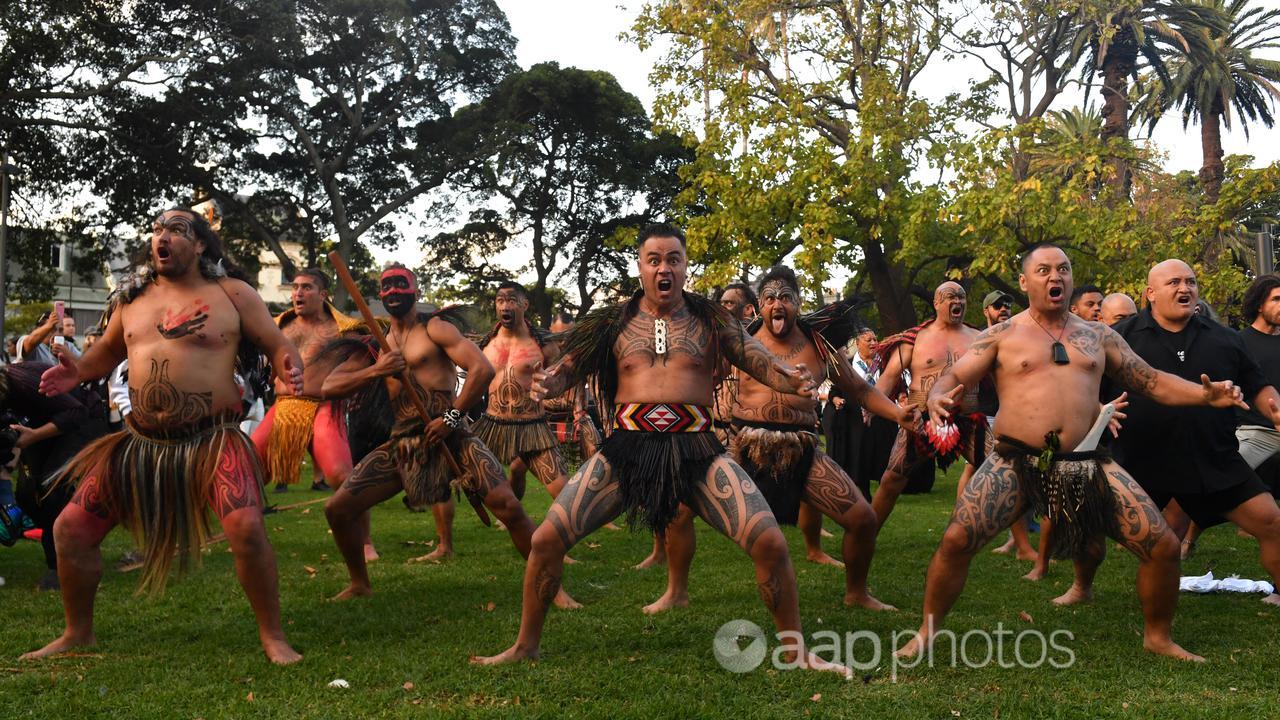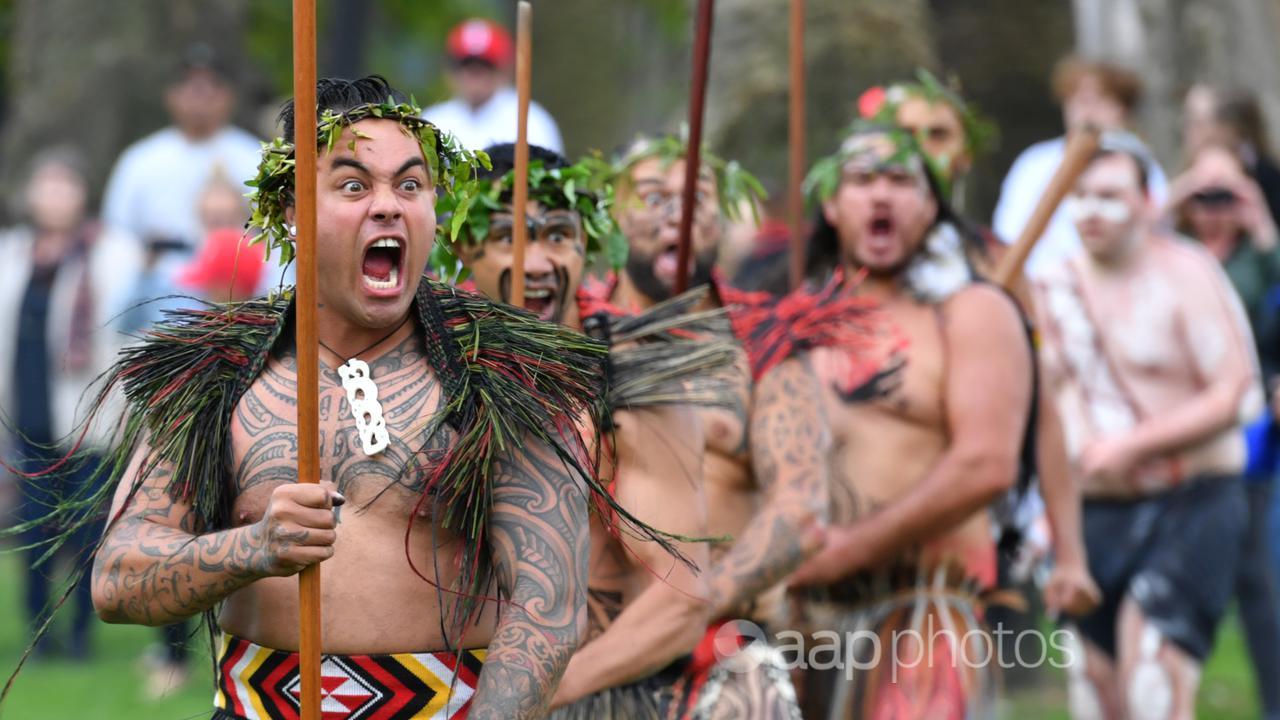A long-held but unsupported claim that Maori are not the indigenous people of New Zealand has resurfaced on social media.
The post, made to a Facebook discussion group on November 16, claims that there were “many other races” already living in New Zealand before Maori arrived.
But the claim is false. There is no evidence of people living in or visiting New Zealand before Maori. Archaeological, social and scientific data all points to settlement by Maori in around 1300.

The Facebook post (archived here) uses a near 10-year-old meme which quotes Nga Puhi elder David Rankin saying: “Maori are not the indigenous people of Aotearoa New Zealand. There were many other races already living here long before Kupe arrived. I am his direct descendant and I know from our oral history passed down 44 generations.”
The post’s caption adds: “Maori are NOT indigenous to New Zealand.”
The meme echoes NZ media coverage of claims Mr Rankin made around 2012 (see here and here), in which he cited work by Ian Wishart and Noel Hilliam. He said these works presented “clear evidence” early residents of NZ might have arrived before the Polynesians.
Mr Rankin also claimed the country’s past was being concealed by academic historians as part of “a conspiracy”.
But experts in Maori history and archaeology told AAP FactCheck the claim is false. They point to considerable archaeological, social and scientific evidence to prove settlement by Maori around 800 years ago.
They say there is no credible evidence to suggest anyone lived or visited NZ before that time.
Genealogical dating, which counts back through generations of Maori to the descendants who first arrived in NZ, places settlement at 24 to 27 generations ago – 1325-1400 CE. Oral traditions identify Polynesian explorer Kupe as the first to arrive in NZ.
Emeritus Professor Atholl Anderson of the Australian National University, and co-author of Tangata Whenua, told AAP FactCheck that any suggestion people existed in NZ before Maori was “absolutely wrong”.
Prof Anderson said Maori migrated from tropical East Polynesian islands such as Tahiti and Rarotonga about 800 years ago and were the first people to exist in the country.
“How do we know? Extensive research for more than a century has looked at this question from various angles,” he said via email.
“First, there is no physical evidence of people living in or visiting New Zealand before about 800 years ago. This is shown by scientific research on the age at which deforestation began, on the age at which extinction of birds began, e.g moa, and on the age at which any introduced animals or plants first appeared, e.g. the Polynesian rat at about 800 years ago and no earlier.
“Second it is shown by the archaeology of NZ in which the many thousands of human settlement sites extend back to about 800 years ago according to thousands of radiocarbon dates, and no earlier.
“Thirdly, all the material evidence from those sites is very clearly of East Polynesian origin or derivation, as shown by comparison with similar material culture in the archaeology of tropical East Polynesia.”
He concluded: “In short, no scientific, archaeological or any other type of scholarly evidence has ever produced a convincing case for anything other than exclusive Polynesian to Maori/Moriori settlement of New Zealand at the beginning of human colonisation here or at any time after that until the arrival of Europeans.”
Research co-authored by Prof Anderson on the Polynesian rat details why older studies suggesting human settlement in NZ as early as the first century CE (as discussed here) were inaccurate.
Associate Professor Ian Barber, expert in Maori and Moriori archaeology at the University of Otago, told AAP FactCheck there was no evidence to support the claim.
“There is a long and sad record of claims that Maori ancestors were not the first settlers… An early ethnological myth portrayed Moriori as the first inhabitants, supposedly descended from a western Pacific people,” he said via email.

“I can assure you there is not a shred of evidence for this claim which has a nasty racist base… the archaeological and anthropological reality is that Maori and Moriori are cognate, and Polynesian in origin.”
He added: “More recent claims have pre-Maori populations of Egyptians, Celts and Chinese, all without foundation. The evidence otherwise is overwhelming.”
Isaac McIvor, a lecturer in archaeology at the University of Otago and PhD candidate, also said there was no evidence to suggest anyone had settled in NZ prior to Maori.
“These voyagers made several trips to Aotearoa from as early as the mid-13th Century AD based on current radiocarbon dates from the physical remains of early wahi tupuna (ancestral places),” Mr McIvor said.
While Te Ara: The Encyclopedia of New Zealand states that no dating method is 100 per cent foolproof, it concludes all “show remarkable agreement that permanent Polynesian settlement was established around 1300.”
As well as radiocarbon dating and tribal genealogies (whakapapa), the encyclopedia points to pollen analysis which shows huge changes in vegetation around 1300.
“Sudden changes in the types of pollen in different sediment layers indicate forest clearance by fires lit by the earliest permanent settlers,” the encyclopedia states.
AAP FactCheck has previously debunked false claims concerning purported moves in NZ towards Maori co-governance.
The Verdict
The claim that Maori are not the indigenous people of New Zealand is false.
Archaeological, social and scientific data all points to settlement by Maori around 1300. This includes carbon dating, pollen analysis, the tracing tribal genealogies, and the appearance and disappearance of animal and plant species at that time.
Experts told AAP FactCheck no credible evidence has ever been produced to suggest settlement prior to Maori.
False – The claim is inaccurate.
* AAP FactCheck is an accredited member of the International Fact-Checking Network. To keep up with our latest fact checks, follow us on Facebook, Twitter and Instagram.
All information, text and images included on the AAP Websites is for personal use only and may not be re-written, copied, re-sold or re-distributed, framed, linked, shared onto social media or otherwise used whether for compensation of any kind or not, unless you have the prior written permission of AAP. For more information, please refer to our standard terms and conditions.


















